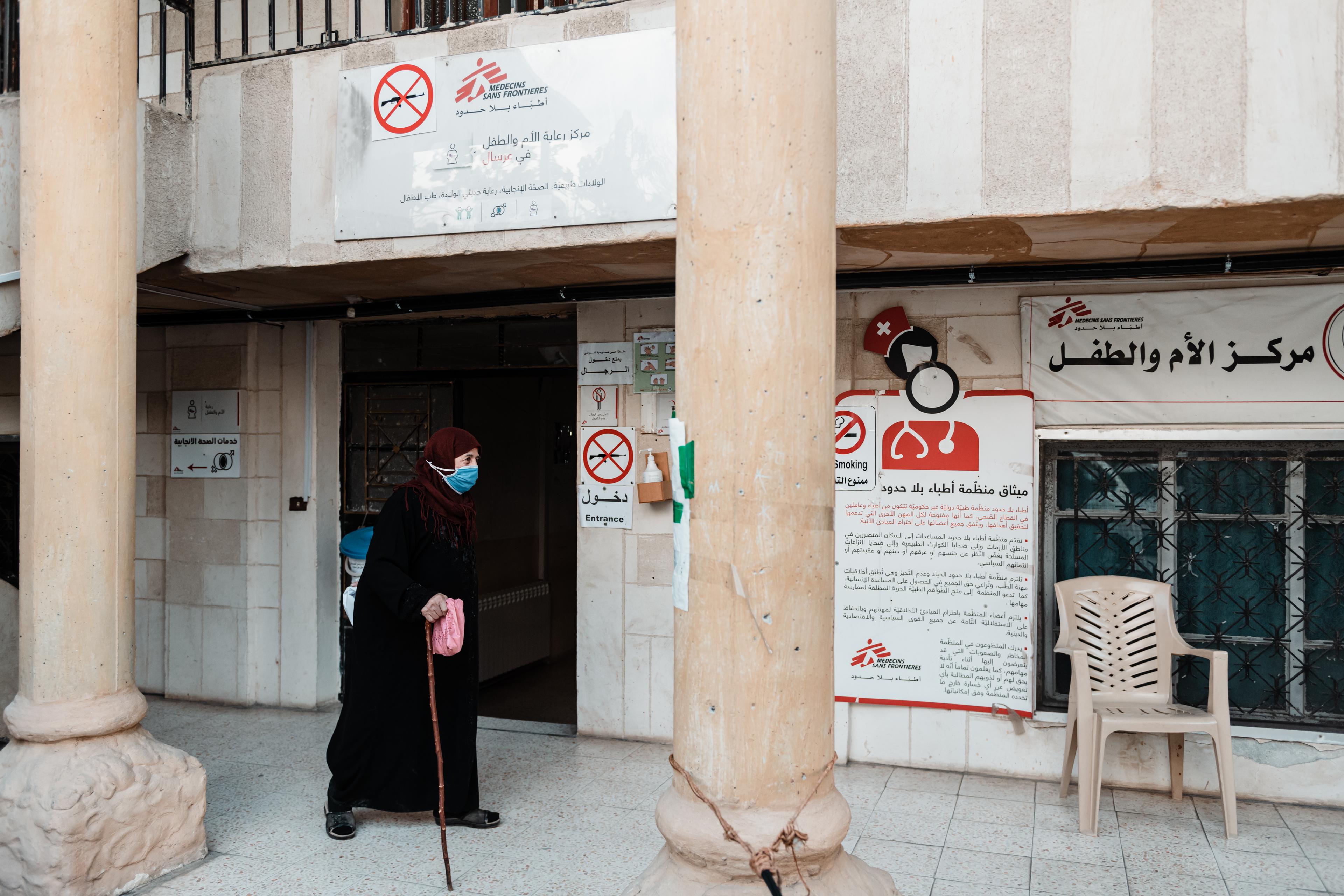
Healthcare System Disintegrates as Political Vacuum Persist
In 1 click, help us spread this information :
Hospitals are already having to ration their services and prioritise patients. Joao Martins, MSF head of mission in Lebanon
“People could now die from totally avoidable, and otherwise easily treatable causes, just because hospitals don’t have electricity, the right supplies, or staff. The crisis in Lebanon has been driven by years of corruption, and now we are seeing that this can contribute to the destruction of an entire health system just as effectively as war or a natural disaster,” says Martins. “The political vacuum in the country is not only the cause of this healthcare crisis, but is also blocking solutions to it. The authorities need to act now to avoid even worse consequences for people living in Lebanon.”, explains Martins.
Shortages of diesel and fuel
The economic crisis has not only destroyed people’s purchasing power and led to unprecedented inflation but it has also choked off the importation of fuel to the country. Hospitals have been experiencing daily power outages that last for hours because of cuts in the national electricity grid, and shortages of diesel fuel for their backup generators.
MSF is not immune to these power shortages. In our hospital in Bar Elias (Bekaa Valley), our teams recently faced a power cut that lasted over 44 hours across a three-day period, forcing our medical team to reduce surgical operations by 50 per cent for those days and to ration fuel use to ensure that they could respond to emergencies.
In addition, our teams regularly rely on other hospitals for referrals, but this is becoming increasingly difficult as those hospitals are stopping non-emergency care to save on fuel. For example, one of the public hospitals that our teams normally refer patients to recently informed us that they could no longer receive patients coming from our facilities, as they shut down their psychiatric ward to minimise power usage.
Medication becoming scarce
Lebanon is also experiencing a shortage of basic drugs and medication across distributors and pharmacies, most of which cannot be produced or made available locally.
In the past months, across different projects, our teams have received new or former patients who reported that public primary healthcare centres no longer have the necessary medicine for their treatments. Some of these people had previously been stabilised by MSF and referred to the public system for long-term follow-up of their chronic conditions.
It is extremely worrying to see people whose conditions were stable but are now deteriorating again because they have not been able to get access to the drugs they needed. Joanna Dibiasi, midwife activity manager for the MSF South Beirut project
For the first time, public hospitals where we refer pregnant women for deliveries are also asking our teams to provide them with oxytocin and magnesium, which are essential drugs to treat possibly deadly post-partum conditions.
“Sadly, we do not always find ourselves able to support. The quantities in our clinics and stocks are limited and even if we manage to get an extra order it takes time because of the importation delays. Due to the complicated and often chaotic public system, shipments of drugs are often taking eight months to reach us, which is simply too long in the context of a healthcare emergency,” says Martins.
Overstretched humanitarian organisations
People are also no longer able to afford private medical care and there is a striking spike in the number of people seeking humanitarian assistance to access healthcare services. Our teams are witnessing it first-hand in our clinics, as more and more people come in for free medical services and the overall level of vulnerability amongst our patient’s cohort is only increasing with people asking us for other forms of assistance like food throughout their medical consultation visits.
In our project in the Bekaa Valley, where we provide reproductive and mental healthcare as well as medical care for people with chronic diseases, we are witnessing an exponential increase in the number of people approaching us to access our medical services. The number of people with chronic health issues assisted by our teams increased by 60 per cent since the beginning of last year, and the number of Lebanese patients has doubled.
“We are currently following up and providing medical care to 3,500 chronic disease patients in the Bekaa Valley, specifically in Hermel and Arsal,” says Céline Urbain, project coordinator at MSF Bekaa project. “This increase is alarming because we are reaching our limits in terms of medical personnel per patient, which can reduce the quality of care.”
A few months ago, we also witnessed a massive increase in women coming to our maternity clinic in South Beirut. Pregnant women were lining up outside the facility and waiting for hours to be admitted and receive our free antenatal care and delivery services. This posed risks for these women, and so our teams put in place a socio-economic assessment so that we could target the pregnant women in most critical need. “While it is good that we provided help to those who had the least means to seek care elsewhere, we are painfully aware that we cannot help everyone,” says Dibiasi.







